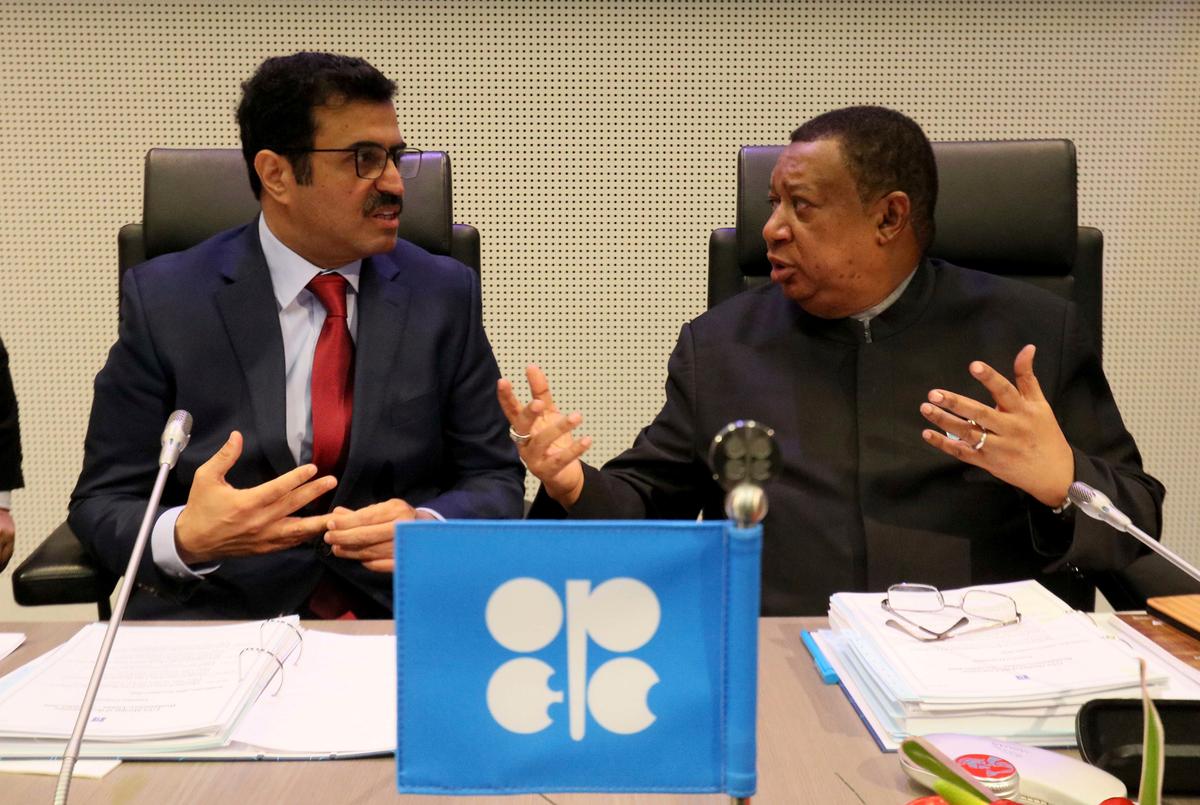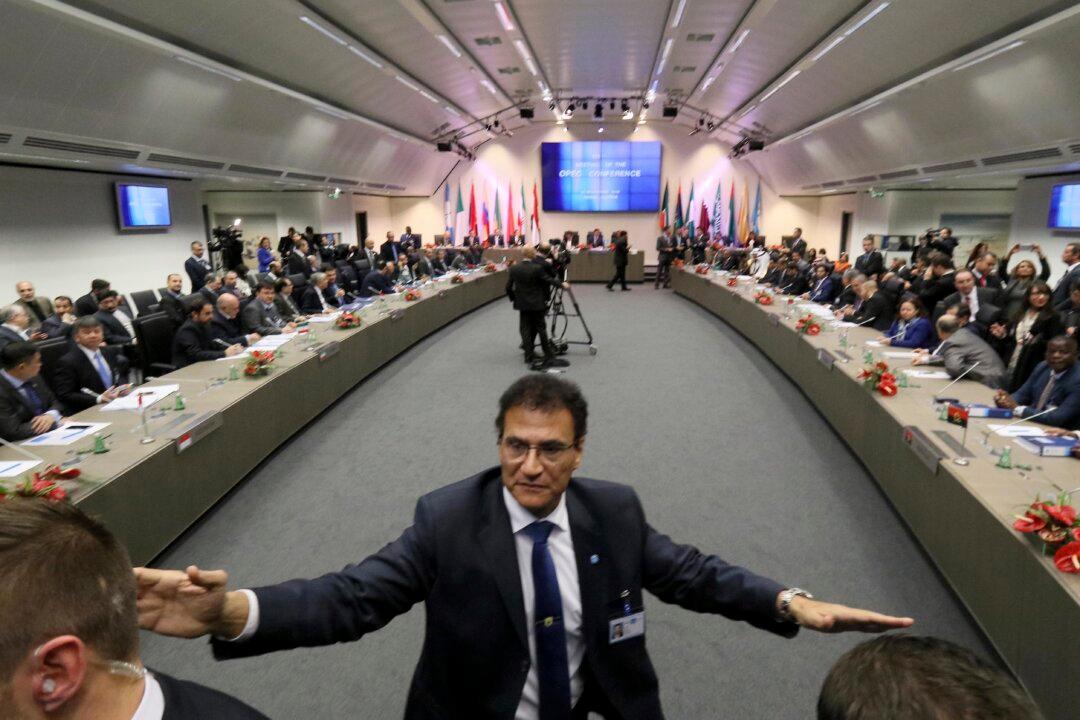VIENNA—Breaking with years of inaction, OPEC agreed Wednesday to cut its oil output for the first time since 2008. The move effectively scraps its strategy of squeezing U.S. competition through high supply that had backfired by lowering prices and draining the cartel’s own economies.
The reduction of 1.2 million barrels a day is significant, leaving OPEC’s daily output at 32.5 million barrels. And OPEC President Mohammed Bin Saleh Al-Sada said non-OPEC nations are expected to pare an additional 600,000 barrels a day off their production.
The combined cut will result, at least in the short term, in somewhat more pricey oil—and, by extension, car fuel, heating and electricity. The international benchmark for crude jumped 8.3 percent, or $3.86, to $50.24 on Wednesday.
In the longer term, however, analysts say it’s highly unlikely that oil will return to the highs of around $100 a barrel last seen two years ago. That’s partly due to the fact that President-elect Donald Trump has promised to free up more oil drilling in the U.S., which would increase global supply. Demand is also not recovering as the world economy sags.
Playing tribute to “a historic moment,” Al-Sada said Wednesday’s move “will definitely balance the market and help (in) reducing the stock overhang.”
Al-Sada said the OPEC cutback is to take effect Jan. 1, with consultations planned on the exact timing of the non-OPEC reductions. Russia alone is committed to taking 300,000 barrels a day off the market.
With the production cut, OPEC will not only benefit from gaining more dollars per barrel. It can also lay claim once again to playing a part in influencing world prices.
And its tentative alliance with Russia and other non-OPEC nations may give it—and them—additional clout in future competition for market share with U.S. producers, which are sure to return in increasing numbers if crude prices move upward.






